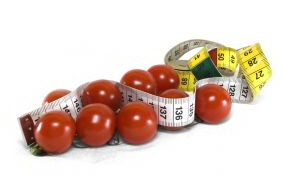 What is emotional eating? Most of us eat in response to an emotional trigger. We are happy, sad, celebrating, depressed, angry, frustrated, or scared. Does that sound familiar?
What is emotional eating? Most of us eat in response to an emotional trigger. We are happy, sad, celebrating, depressed, angry, frustrated, or scared. Does that sound familiar?
If it doesn’t you may be in the majority of people who don’t recognize the emotional aspects that goes in eating habits. It isn’t unusual not to be aware of the factors that impact emotional eating. In fact, most of our decisions have an emotional component well before we have the chance to make a rational decision.
We are subconsciously conditioned through years of exposure to family, friends and advertising that foods just make us feel good. They fill a real biological need in us so the body has energy to burn. But, as we move into emotional eating we are using food to fill another void. We are using food to fill an emotional need that should be filled elsewhere.
There is a fine line between emotional eating and a full-blown eating disorder. A binge eater or compulsive eater goes beyond the basic behaviors of an emotional eater. How can you tell which category into which you fall?
 There are specific characteristics that are evident in people who have full-blown eating disorders. They regularly binge or eat large amounts of food, rapidly. People with eating disorders will ‘feel’ out of control about food or feel they are obsessed about food.
There are specific characteristics that are evident in people who have full-blown eating disorders. They regularly binge or eat large amounts of food, rapidly. People with eating disorders will ‘feel’ out of control about food or feel they are obsessed about food.
Other behaviors that distinguish a person with an eating disorder vs. emotional eating is that they hide foods around the house or may eat in hiding. For instance, the primary shopper may purchase foods that are hidden from the rest of the family and then eaten after everyone else has gone to bed.
People who have both eating disorders and who are avid emotional eaters also have sometimes experienced a traumatic event in their lives – either physical or sexual abuse as an example. The percentage of people with eating disorders who have experienced this abuse is higher than those with simple emotional eating.
People suffering from binge eating have several challenges, not the least of which is that the condition isn’t as well popularized as anorexia or bulimia. People may not know they have a medical disorder. People who suffer from eating disorders should never attempt to ‘go on a diet’ but should, instead, seek the advice of a trained licensed therapist.
While people have significant emotional eating habits aren’t at the medical and psychological risk that people with full-blown eating disorders are, they don’t suffer any less.
 Control of emotional eating starts with self-awareness of the problem and then self-management. Self-awareness is the most difficult part since it involves the acceptance that you have a weakness that has led to the problem with overweight or obesity and you weren’t just ‘born’ that way.
Control of emotional eating starts with self-awareness of the problem and then self-management. Self-awareness is the most difficult part since it involves the acceptance that you have a weakness that has led to the problem with overweight or obesity and you weren’t just ‘born’ that way.
You can begin to evaluate your emotional eating habits by keeping a short 4-5 day diary. Write down each time you eat. Not what you eat but the time of the day and how you are feeling each time you reach for another morsel of food. If you first acknowledge that there WILL be a feeling there for you to discover you will find that identifying that emotion becomes easier each day.
At the end of the 5th day you can look through your diary and note how many times you ate because you were, or thought you were, hungry. Evaluate that number, the times of the day and other emotions that seemed to be involved in the automatic reach for food. Be honest… you won’t hurt or help anyone else but yourself.
Self-management is the next step. Like all things in life, the longer you do something the easier it gets. Practice really does make something, if not perfect, at least easier. You may chose to do this part on your own but you will have more success if you enlist the help of a partner – or at least a calendar.
Continue to write down the times you eat, and your emotional reasons why. As you are forced to write, before you eat, and read your reasons, you will be encouraged to put that food down when you are angry, depressed, or on an emotional high. The act of emotional eating will decrease and you’ll be surprised to once again feel feelings of actual hunger!
RESOURCES
HelpGuide: Emotional Eating
http://www.helpguide.org/life/emotional_eating_stress_cravings.htm
MayoClinic: Weight Loss: Gain Control of Emotional Eating
http://www.mayoclinic.com/health/weight-loss/MH00025
Health: Emotional Eating: The Trick to Staying Slim
http://www.health.com/health/gallery/0,,20471920,00.html
KidsHealth: Emotional Eating
http://kidshealth.org/teen/your_mind/emotions/emotional_eating.html
Psychology Today: Emotional Eating: 5 Reasons You Can’t Stop
http://www.psychologytoday.com/blog/inside-out/201309/emotional-eating-5-reasons-you-can-t-stop
CNNHealth: Study offers clues to emotional eating
http://www.cnn.com/2011/HEALTH/07/25/study.clues.emotional.eating/
Prevention: Are you caught up in a cycle of emotional eating
http://www.prevention.com/mind-body/emotional-health/stop-emotional-eating-and-lose-weight-good
Health Children: Emotional Eating


Leave a Reply